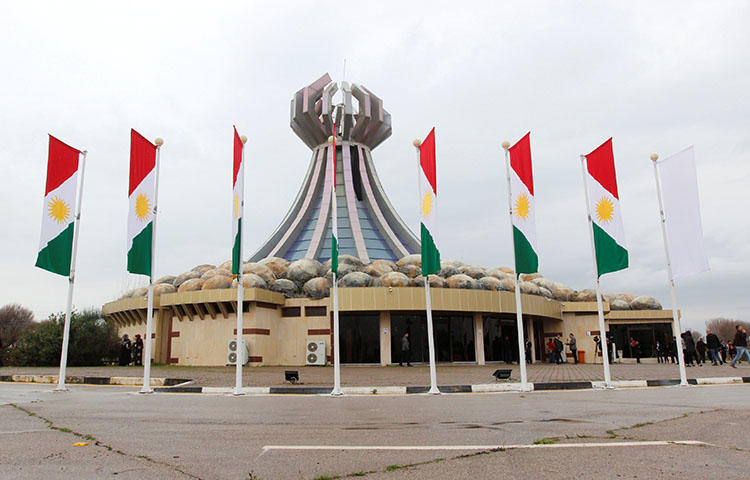Beirut, June 1, 2018–Iraqi authorities should stop harassing Hossam al-Kaabi, an Iraqi correspondent for the Sulaymaniyah-based independent broadcaster NRT Arabic, and allow him to work without fear of government retaliation, the Committee to Protect Journalists said today.
Iraqi authorities on May 29 issued a warrant for al-Kaabi’s arrest on criminal charges of stealing documents from the board of directors at the local al-Najaf al-Ashraf International Airport, according to the journalist, his employer, and the local press freedom group the Iraqi Center for Supporting Freedom of Speech.
The charges against al-Kaabi carry up a jail sentence of up to two years, according to the Iraqi Penal Code.
The journalist told CPJ that the documents are public and that the board of directors filed a complaint against him after he used the documents in several video reports, published in February 2018, about alleged corruption and embezzlement within the airport administration.
The al-Najaf al-Ashraf International Airport did not respond immediately to CPJ’s emailed request for comment.
The journalist, who was speaking from an undisclosed location because he had gone into hiding on May 29 after finding out about the arrest warrant, said Iraqi authorities refused to give his lawyer a copy of the warrant.
“Reporting on corruption and holding officials to account is a vital part of the work of a free press in a democracy,” said CPJ Deputy Executive Director Robert Mahoney from New York City. “Hossam al-Kaabi deserves due process under the law and at the very least his lawyer should be able to see the warrant issued against his client.”
On May 31, Iraqi security forces also searched al-Kaabi’s house in the city of Najaf, 100 miles (160 km) south of Baghdad, though did not take anything, according to al-Kaabi’s relatives who told the journalist about the search.
Freelance journalist and political commentator Samir Obeid was arrested at a checkpoint on the outskirts of Baghdad on February 2 and has been held in jail ever since, CPJ research shows.
